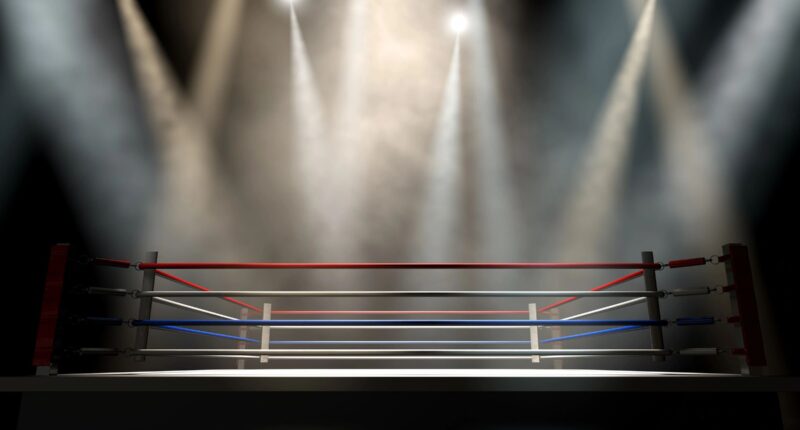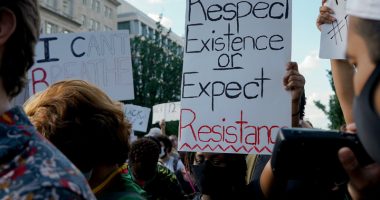“Big” George was a true legend. I know this is late, considering boxing legend, George Foreman transcended a few weeks ago on March 21 at the age of 76. But better late than never.
George Foreman was born on January 10, 1949 in Marshall, Texas. He was raised their with six siblings by a single mother in the segregated south.
He dropped out of school early and turned to street robberies before discovering the fine art of pugilism.
Through this discovery of boxing, he won the heavyweight gold medal at the 1968 Olympics at the age of 19 before turning pro. He won 37 consecutive fights, 34 by knockout, before knocking out then undefeated late heavyweight champion, “Smokin” Joe Frazier in 1973. He successfully defended his title twice before losing to late heavyweight legend, Muhammad Ali in 1974 in the “Rumble in the Jungle” bout in Kinshasa, Zaire.
Foreman won a few more fights before losing in 1977 to Jimmy Young. Foreman retired after that and eventually became an ordained minister at the Church of the Lord Jesus Christ in Texas, which he founded and built.
Foreman returned to boxing in 1987 and made one failed attempt at the heavyweight crown in 1991 against boxing legend, Evander Holyfield before eventually making history as the oldest person to regain the title in 1994 by knocking out Michael Moore.
Alright. Recounting Foreman’s life story is like saying water is wet and fire is hot to me, considering I’m a sports fan, and specifically, a boxing fan. So I know most of the major stars’ life story and career chronicle like the back of my hand. But to a casual observer, this may be new information or a rehash of you’re vague knowing of some old-school boxer who sold a hamburger grill as a bald, jolly, older guy.
When Black America thinks of say, a Muhammad Ali, you think of a conscious, pro-Black brother who rose to the top of his field. He had mainstream and even global fame from being a great boxer. But he also used his fame to highlight his disdain for racism by aligning with Malcolm X and the Nation Of Islam in the mid-1960s and then refusing induction into the armed forces to fight Vietnam by stating, “No Vietcong ever called me nigger.” And he proudly accepted having his boxing license revoked while being suspended from boxing for three years while also risking jail time. And Black America loved him for that.
A George Foreman, Joe Frazier, Sonny Liston, or a later era Sugar Ray Leonard, Mike Tyson or any mainstream basketball, football, or baseball player, actor, singer, or entertainer in any other field, you just think of Black excellence. They were great in their field, and they just happened to be Black. They may not publicly make eloquent statements pertaining to race relations, but they were great in their own way in their respective fields as a Black man or Black woman too, for that matter.
Jim Crow racism indoctrinated an inferiority complex in Black people in every area- including intelligence, athletics, and entertainment. So overcoming the inferiority conditioning to excel past other competing talents of all races and representing yourself publicly with dignity and self-respect is all that’s needed.
There was some controversy among the conscious Black America surrounding George Foreman waving the American flag at the 1968 Olympics, amid track stars John Carlos and Tommie Smith raising their Black power fist at the same Olympics, Muhammad Ali’s refusing induction into Vietnam, Jim Brown, Bill Russell, and Kareem Abdul-Jabbar’s supporting of Muhammad Ali’s refusing induction at the public forum in Cleveland in 1967.
Foreman resented that criticism by stating he wasn’t taking a shot at anti-racist America sentiments in the Black community in the 1960s. He was simply showing the Olympic world stage what part of the world he was from that birthed and raised him. And that just happened to be America, despite the political upheaval at the time.
Foreman’s experience in America was having a troubled childhood. When President Lyndon Johnson created the Job Corps, it gave Foreman an outlet away from the streets. It was there that he learned boxing.
“After I won the Gold Medal, I went to the White House to present Lyndon Johnson with a plaque as a way of thanking him for creating Job Corps.”
The Job Corps created by Lyndon Johnson, allowed him to learn boxing and eventually become a multi-millionaire athlete. So of course Foreman was going to show gratitude for American opportunities that allowed personal social mobility while still not dismissing warranted Black cynicism at collective racial oppression.
George Foreman’s persona changed from the surly, cold, young man in the 1970s to the jolly, positive older man in the 1980s and 90s. Here’s a jewel left by George Foreman.
“It’s great to reminisce about good memories of my past. It was enjoyable when it was today. So learning to enjoy today has two benefits: it gives me happiness right now, and it becomes a good memory later.”
– George Foreman










